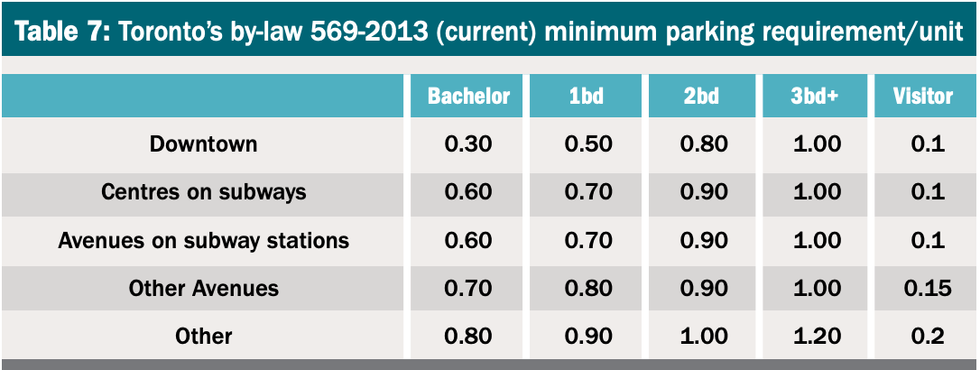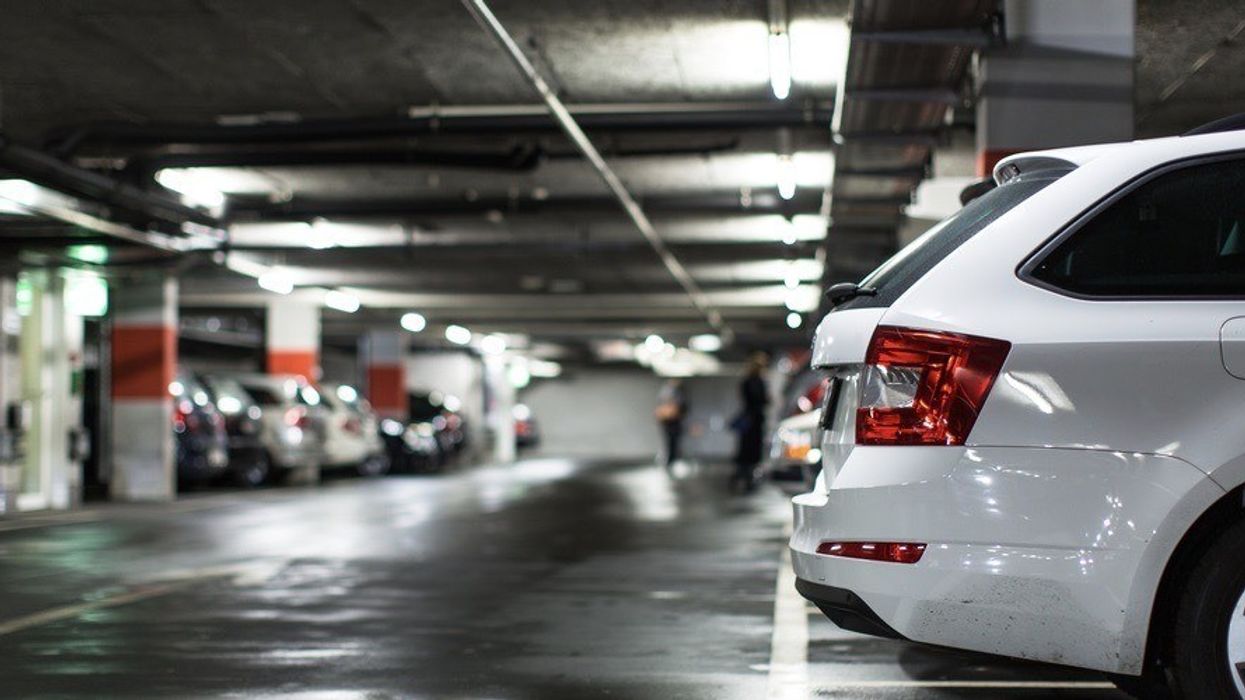To keep up with the evolving needs of residents, Toronto is now exploring ending parking minimums and, instead, imposing parking maximums in new developments.
Currently, the City requires a minimum number of parking spaces based on the location and use of new buildings, which varies in different parts of the city. However, a recent report by planning staff to the City’s planning and housing committee calls to review parking requirements for new developments and implement a maximum number of required parking spots, which would reduce the risk of a future oversupply of parking.
The last time parking requirements were reviewed was in 2013.
READ: For a City of the Future, Mississauga’s Parking Spot Policy is Stuck in the Past
The City establishes its parking requirements for new developments under Zoning By-law 569-2013, and according to a 2019 report from the Residential and Civil Construction Alliance of Ontario (RCCAO), in downtown Toronto, builders are supposed to provide 0.3 parking spots for a bachelor condo, 0.5 parking spots for each one-bedroom condo; 0.8 spaces for a two-bedroom, and 1 parking stall for condos with three or more bedrooms.

RCCAO says the minimum parking requirements for downtown Toronto have been largely unchanged since 1986, which implies that parking policy in Toronto has not been used to influence automobile ownership in over three decades.
Presently, the demand for parking in the city continues to shift as a result of societal changes and other factors, including a decrease in vehicle ownership and increases in popularity of automobile alternatives, like ride-sharing and public transit advancements.
The report also highlights the city’s growing housing affordability issues, as parking minimums increase the cost of housing, by adding to construction costs which may, in turn, be passed on to residents.
Nadia Todorova, interim executive director at RCCAO, told Toronto Storeys she's very pleased the City is reviewing parking regulations and considering removing the standard requirements as it's something the alliance has been advocating for years.
She noted that while the City does make acceptions for some new buildings, it's done on more of a case-by-case basis, so moving forward with these changes would result in a more unified approach that would help meet the needs of residents.
Richard Lyall, president of RESCON, the residential builders’ association, told Toronto Storeys that while he thinks the City is making adjustments, the rules need to be changed.
"Given the improvements with transportation in general, the increase in ride-sharing, and the overall costs of vehicles, it makes no sense to build parking that's not needed."
Lyall said building parking adds a huge cost to construction, with a single parking space costing between $80,000 to $100,000 in downtown Toronto. As you could imagine, the further down a builder digs to build parking, the cost goes up. However, the cost doesn't only impact builders, it impacts homeowners, too, as it adds on to already costly maintenance fees, further increasing the cost of housing.
Digging deep into the ground also causes water issues, especially in downtown, which has an adverse impact on stormwater capacity that creates a challenge for sewer infrastructure.
"If we can avoid going into the ground, it can reduce this problem," said Lyall, adding, "if you need to build parking, why not consider building above grade, as it would further eliminate the need to dig deep."
Todorova also said the City could consider exploring above-grade parking, as it's less expensive and allows for the repurposing of parking if spaces become redundant in the future, in addition to having more externalities for housing affordability and stormwater management.
Lyall suggested that above-grade parking could be repurposed as commercial and retail space, or even as future developments to reflect the needs of the city.
While many are advocating that changes need to be made, some believe that parking is still an essential need in new developments.
Over the past year, amid COVID, Dorian Rodrigues a Broker with PSR, says he has noticed a decline in the need for parking spaces as the majority of homeowners are working from and the need to leave hasn't been a necessity.
"However, previously the need for a parking spot was very desired. Even homeowners who didn't necessarily drive and needed a spot, preferred to have one because of the ability to rent it out to other residents in the building, said Rodrigues, adding that this helped contribute to mortgage payments as supplemental income.
"I strongly believe parking is very important. They should not impose a maximum on parking spaces because the builders will likely put fewer spots than what is currently being offered."
While the changes to parking are overdue, as Lyall pointed out, "it's better late than never."





















